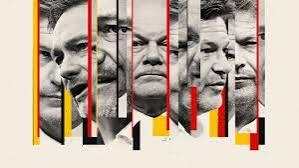
Germany’s Government Faces Growing Criticism Over Governance Challenges
In recent months, the German government has been facing increasing public dissatisfaction over its handling of key issues affecting the nation. While Germany remains one of Europe’s most powerful economies, a combination of domestic policy failures, political gridlock, and international pressures has left the government under heavy scrutiny. Many Germans are now questioning whether their current leadership is adequately equipped to navigate the country through its complex challenges.
A major source of discontent stems from the government’s handling of the ongoing energy crisis. Following Russia’s invasion of Ukraine, Germany was forced to rapidly rethink its energy supply chain, as it had long been reliant on Russian gas. Although the government has taken steps to reduce this dependency and increase renewable energy production, critics argue that these measures have been slow and ineffective. As a result, energy prices have soared, causing significant financial strain on households and businesses alike.
Additionally, the country’s housing crisis has worsened under the current administration. Many urban areas face severe shortages of affordable housing, leading to skyrocketing rents and increased homelessness. Efforts to address the crisis, such as rent controls and housing development programs, have fallen short, drawing accusations of poor planning and ineffective policy implementations.
Germany’s healthcare system, once considered one of the strongest in Europe, is also under significant strain. The COVID-19 pandemic exposed critical weaknesses in the system, particularly in terms of hospital capacity and medical staffing shortages. Despite promises of reform and investment, little progress has been made, and many Germans now fear that their healthcare system is ill-prepared for future crises.
Politically, the coalition government, which is made up of the Social Democrats (SPD), the Greens, and the Free Democrats (FDP), has been struggling with internal divisions. The different priorities of these parties have led to policy deadlocks, making it difficult for the government to move forward on key issues like climate change, economic reform, and immigration policy.
Overall, the combination of rising economic pressures, social issues, and political infighting has left the German government in a precarious position. As public dissatisfaction continues to grow, many are calling for new leadership and more effective governance to steer the country through its
challenges.
Leave a Reply